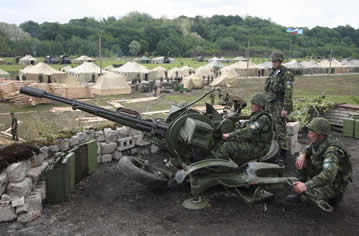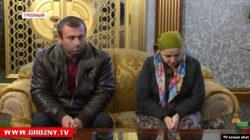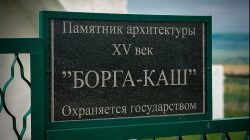
Moscow – Georgia was panicked into proposing to Russia to share Abkhazia after Russia decided to improve its relations with Abkhazia and South Ossetia in retaliation for Kosovo’s declaration of unilateral independence.
The Georgian administration proposed to its Russian counterpart that Tbilisi would be ready to cancel its plans of joining the NATO if it could own the control over southern Abkhazia whilst Moscow could control the northern part of it, the Russian daily Kommersant cited some sources of the Russian Foreign Affairs as claiming. Both Moscow and Tbilisi dismissed the Kommersant claims as being false.
According to the Kommersant claims, Georgia would be able to resume its control over the Kodor Valley, Gal and Ochamchira provinces of Abkhazia.
The Russian peacekeeping forces which are currently entitled by the Moscow Treaty of 1949 to control both sides of the Inghur River was offered a withdrawal from southern Abkhazia though it could still maintain its control over the northern regions of Abkhazia, including the capital city Sukhum, all the way down to the Russian border with Abkhazia.
The proposal further suggests that Abkhazia should be treated principally as autonomous in its system of government while bound to Georgia territorially. The Georgian refugees who left Abkhazia during the war from 1992 to 1993 will be moved to three areas of Georgia’s choice as well as in Georgia’s control. During the war, an estimate number of 230 000 Georgians left Abkhazia, whereas the then Abkhazian administration took 70 000 of them back to Gal. In return, Georgia will cancel its plans to join the NATO and will allow Russian businessmen to carry out commercial transactions in Abkhazia.
The proposal was leaked out to the press after President Sergei Bagapsh of Abkhazia met with Russia’s President Dmitri Medvedev last Thursday. Bagapsh dismissed the Georgian proposal as being all the same as usual when he said that Abkhazia would definitely not be a part of the Georgian territory.
The Kommersant claims were dismissed as being utterly false by Sergei Lavrov, Foreign Minister of Russia, whilst Georgia’s President Mikheil Saakashvili dismissed as being fabricated the Kommersant report that Georgia would give up its ideal of joining the NATO. However, he conceded that Georgia planned to convert both Gal and Ochamchira into free zones of trade.
The Abkhazian administration rejected an offer from Saakashvili to grant autonomy as Abkhazia remained steadfast in its resolution not to give up its search after independence.
Saakashvili is accused of ordering the army of Georgia to increase its military presence along its border to Abkhazia, a breakaway region of Georgia the control of which Saakashvili promised to resume in 2003 when he came to power in the wake of the Rose Revolution. When Georgia sent off troops in 2006 to Upper Kodor, a region that had to be freed from weapons, negotiations broke off. The Security Council of the United Nations (UN) warned twice the administration of Tbilisi to disarm Upper Kodor.
Although Abkhazia looked to Russia for independence after Kosovo set itself independent, the Russian administration rather decided to lift unilaterally its 13-year-old embargo on Abkhazia. When a total of seven Georgian spy drones were shot down in the past few months while they flew over Abkhazia, it literally became possible to hear the bell of a war ring and resonate throughout the Caucasus. Russia sent off additional peacekeeping forces to Abkhazia as Georgia refused to withdraw its troops from its border to Abkhazia. It also set out to modernize the railway system of Abkhazia so that materials of construction could be transferred to Sochi for use in the constructions of complexes for the Winter Olympic Games of 2014. (Agency Caucasus)
[ssba]




